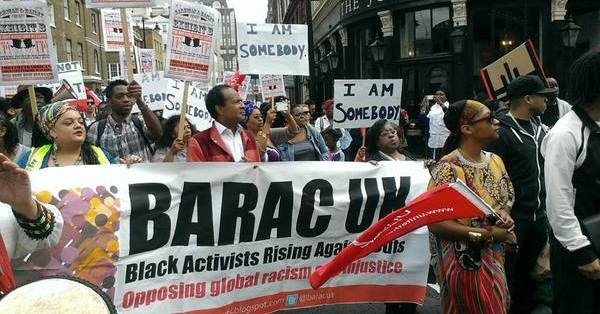Showings of white South African artist Brett Bailey’s 'Exhibit B' at the Barbican in London have been cancelled due to protests.
'Exhibit B' is an art piece composed of thirteen tableaux vivants showcasing black actors in a variety of dehumanizing scenarios. In some they are chained, in others imprisoned in cages. As a literal re-creation of the 'human zoos' that were organized during 19th-century world fairs for European audiences, the work is intended as a critique of the evils of slavery and colonialism. Bailey has asserted that the show also seeks to condemn the institutionalized racism that endures to this day, as it is manifested for instance in the xenophobic policies enforced by EU-member countries.
While it received praise from some art critics and journalists, the exhibition has enraged many. A petition calling for its cancellation received 23,000 signatures as well as the backing of a number of anti-racist organizations. On the show’s opening night, last Tuesday, two hundred protestors blocked the entrance.
Bailey and his supporters have cried censorship. But the freedom of expression card doesn’t trump the problems inherent to the piece. First are the power dynamics between white artist, black actors, and a privileged, primarily white audience. Second is the highly questionable idea that re-creating racism somehow challenges it. In the words of UK-based artist and writer Akala: “What is the psychological profile of the kind of person that would pay £20 to see black humans exhibited in cages?” Indeed, what more does one see here than a white artist placing his guilt complex on the world’s stage and his white audience crying with him?
It is great for art to stir debate. But that should never be to the detriment of the very communities it purports to support.


